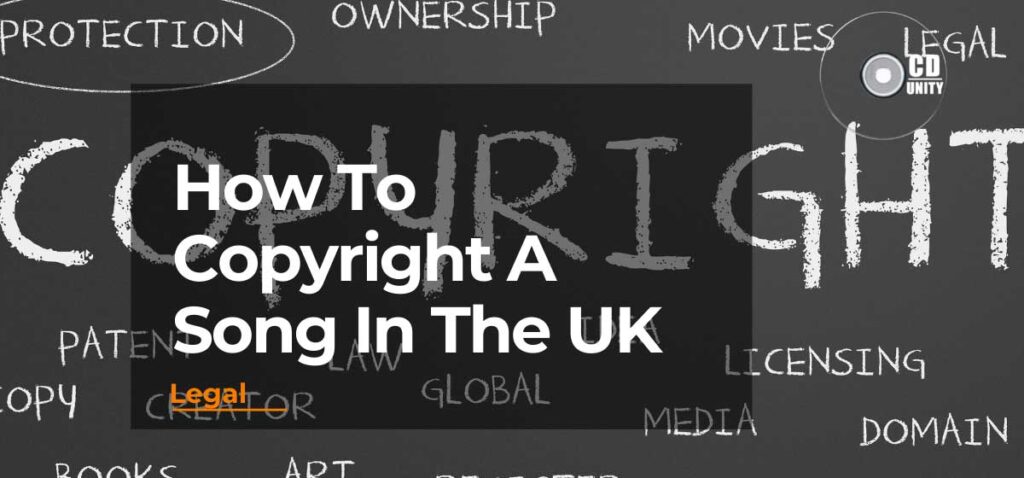
UK Song Copyrighting: A How-to Guide
Copyrights are invaluable for protecting the work of songwriters, composers and lyricists.
But how exactly do you copyright a song in the UK?
Knowing what kind of protection is available and understanding your rights is critical for every musician.
Copyrights are invaluable for protecting the work of songwriters, composers and lyricists.
But how exactly do you copyright a song in the UK?
In this blog post I’ll dive deep into all the aspects of copyrighting your song and what you, the artist, can do to stay safe.
Quick Summary
- Copyright protection is automatically granted to authors of creative works such as songs, lyrics, films and artwork in the UK according to Intellectual Property laws established from 1911 – 1988.
- Creating a tangible recording of your song is essential for protecting it with copyright in the UK. Recordings must be stored safely offsite and backed up if necessary.
- Registering an original musical work with PRS for Music (formerly Performing Rights Society) licenses public performances so that royalties will be collected on behalf of its members, and legal advice can be provided regarding infringement cases.
- Ensure additional protective measures by adding a visible copyright notice when publishing music online or using any promotional materials like posters or flyers, including the author’s name followed by ‘©’ symbol & year creation.
Understanding Copyright Laws In The UK
In the UK, music copyright is covered by legislation from 1911 and 1956, as well as the Copyright, Designs and Patents Act 1988.
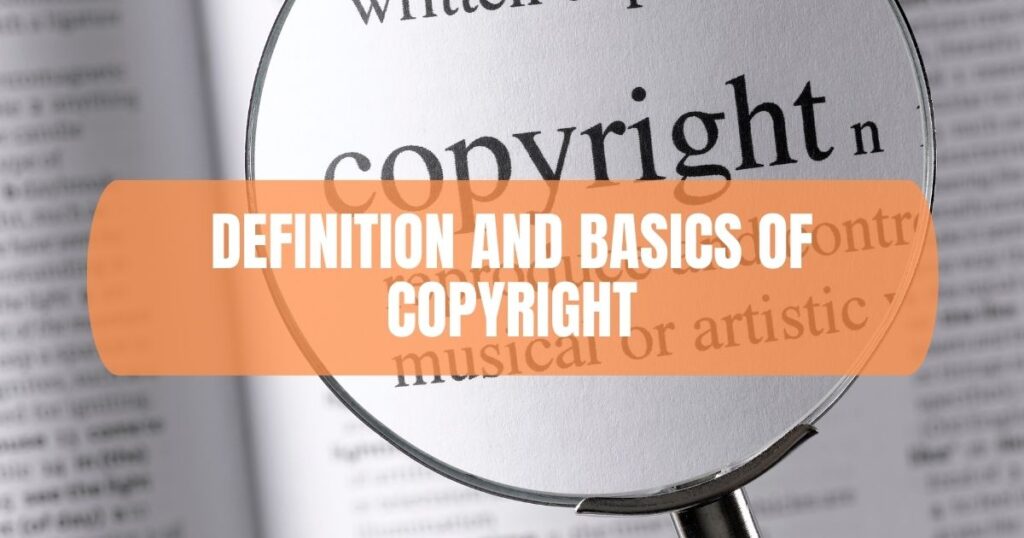
Definition And Basics Of Copyright
Copyright is an automatic and intangible right that protects many forms of creative works, including music, literature, films, artwork, photography and other audio-visual creations.
It enables authors of these works to control how their work is used or exploited commercially by giving them the exclusive right to copy or reproduce it.
Copyright lasts up to 70 years after the death of the original author in the UK for all unpublished material as well as published material too.
UK Copyright Law offers protection not only for those directly creating content, such as musicians recording songs but also extends to other entities interested in a particular work, including publishers who own certain publishing copyrights covering performance and distribution activities relating to the underlying songs themselves.
By registering your musical work with PRS for Music (and other worldwide organisations), you can obtain royalties when your song is communicated through means like radio play or downloads from iTunes etc.
A robust legal framework recognises composer-lyricist collaborations, too, providing both creators share equal credits.
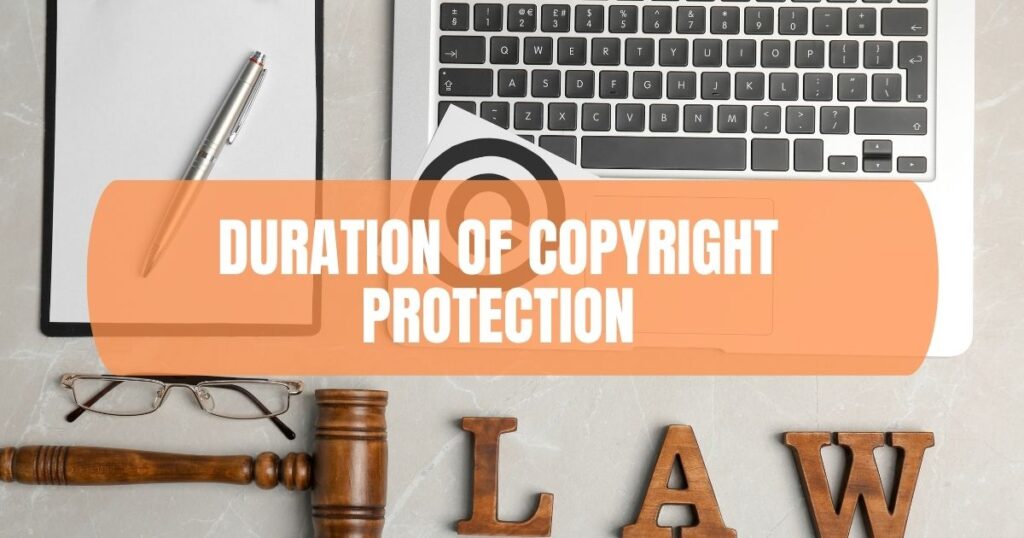
Duration Of Copyright Protection
In the UK, copyright protection for both lyrics and music lasts for 70 years after the death of the author.
This is a significant amount of time that can aid in protecting your work from being copied or stolen without permission.
Different works may have different lengths of copyright protection duration depending on their form and nature.
For example, literary, dramatic, musical and artistic works are protected by copyright lasting through to 70 years after the death of the author while typographical arrangements and published editions expire in 25 years from its publishing date.
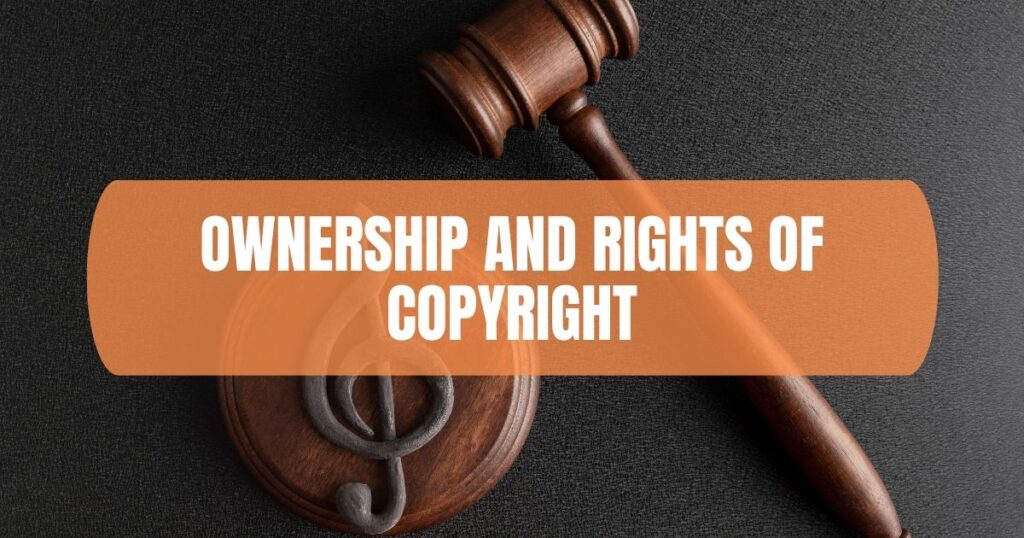
Ownership And Rights Of Copyright
Under UK law, copyright is a form of property right attributed to the work’s owner.
For musical works such as songs and lyrics, this is covered by two Copyright Acts in 1911 and 1956 as well as the Copyright, Designs and Patents Act 1988.
The 1988 Act sets out several exclusive rights given to copyright owners: to reproduce their work (create copies), distribute or perform it publicly, modify it or use it for commercial purposes (e.g.selling recordings).
However, there are some limits to these rights – fair use and other exceptions limit certain uses of copyrighted material without permission from the owner under specific circumstances where no financial gain will be made from doing so (e.g educational research).
How To Copyright A Song In The UK
Creating a tangible recording of the song, registering the work with PRS for Music, protecting it with a copyright notice and making use of performing rights organisations are all essential steps that must be taken in order to secure copyright for a song in the UK.
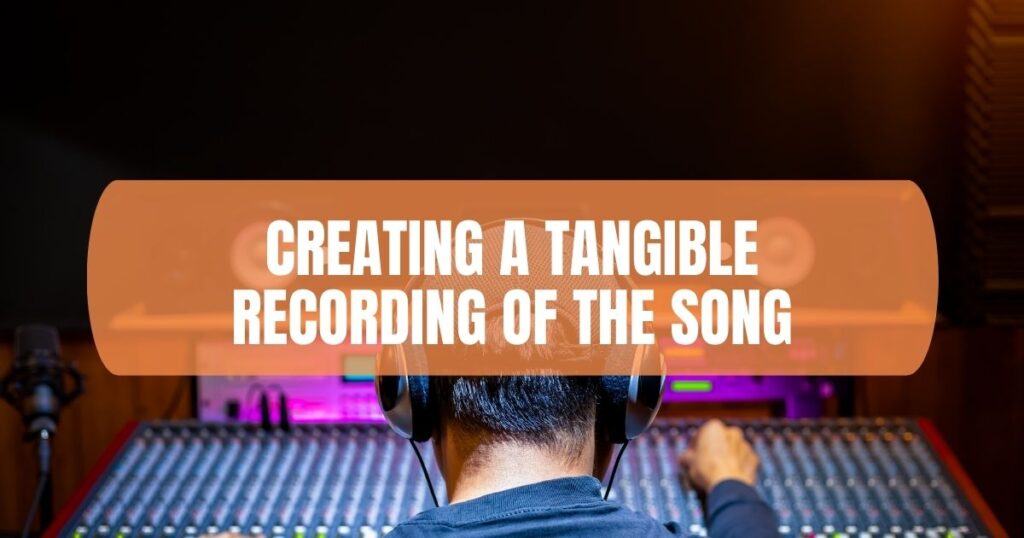
Creating A Tangible Recording Of The Song
Creating a tangible recording of your song is the most critical step to protecting your musical work with copyright in the UK.
Once you record it on any physical or digital format, such as cassette tapes, CD’s or USB drives, either by yourself or professionally produced – the song will be officially documented and protected by copyright laws in the country.
The best approach is actually quite straightforward; lay down a track and produce an audio file saving it in WAV formats instead of MP3 which offers better resolution with fewer artifacts.
Consider capturing multiple tracks on separate files too if you plan on publishing or selling instrumentals separately.
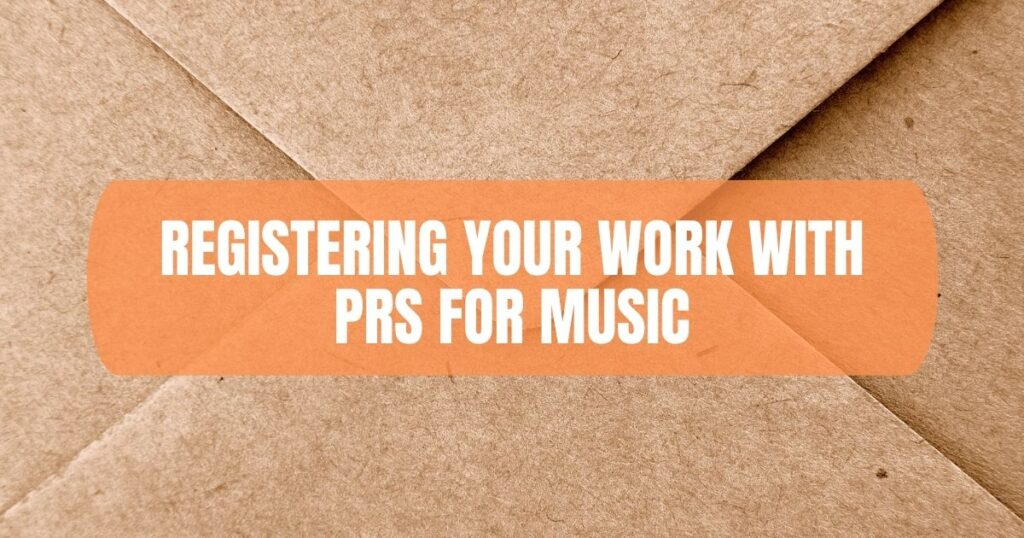
Registering Your Work With PRS For Music
In the UK, you can register your music with PRS for Music (formerly known as the Performing Rights Society) which is a collection society that licenses public performances of copyright-protected works.
By registering your work with PRS, it will be able to lawfully identify songs and collect royalties generated from radio plays and other public performances on behalf of its members.
As a registered member, you gain access to benefits such as support from advisors who are experienced in copyright protection and legal advice if needed.
In addition, they offer detailed reporting services to help you keep track of when/where music has been used so that fair pay can be made accordingly.
Besides placing works under copyright protection upon registration, PRS also recommends sending yourself a dated copy in recorded delivery – this boxed copy should remain sealed until such time that proof is required to demonstrate authorship or place of origin, adding an extra layer of security against infringement claims.
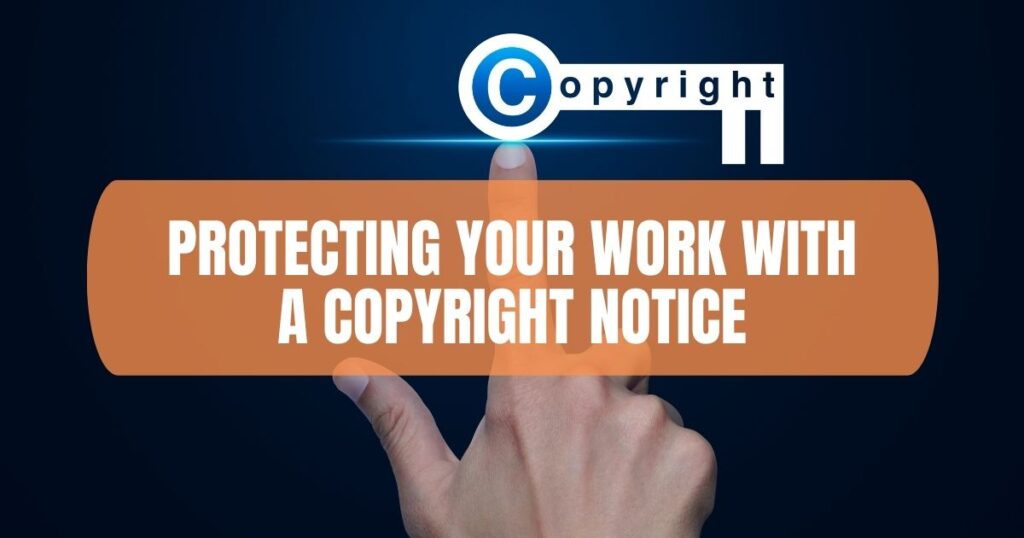
Protecting Your Work With A Copyright Notice
It is essential to mark your music with a copyright notice if you want to ensure your work is protected in the UK.
A copyright notice should include the name of the copyright owner, followed by two symbols: ‘©’ or ‘(c)’ and then the year of creation.
The symbol can be placed next to lyrics, sheet music or at the bottom right-hand side corner of a CD case for example.
It should also be placed on any mediums through which your song could possibly be exploited, including websites, live shows and other promotional materials like posters and flyers.
Creating and placing a clear visible copyright notice will help to discourage infringement as it identifies who owns an original musical composition by providing evidence of ownership.
Using Performing Rights Organisations
Performing rights organisations such as PRS for Music and PPL allow musicians to protect their copyright and collect royalties from the use of their music.
These organisations act on behalf of artists and maintain databases which list all protected works, with each listing containing details about the author, composition title, publisher and type of work (e.g.musical composition).
By registering a song or piece of music with these organisations, any time it is played publicly (e.g. in shops or live performances) a small fee will be collected and paid out to the artist(s).
PRS for music collects royalties based on musical compositions, while PPL looks after royalty payments for sound recordings whenever they are broadcasted.
Alternative Ways To Protect Your Song
Beyond the standard methods for copyrighting your song, you can also explore other options, such as Creative Commons licenses and consulting with an experienced copyright lawyer.
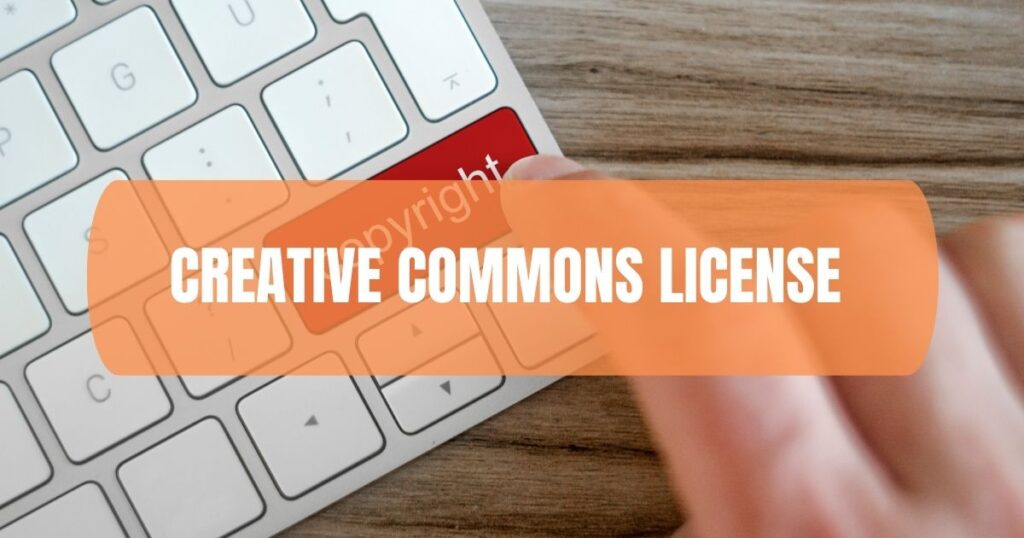
Creative Commons License
Creative Commons licenses provide an alternative for those who want to ensure their music is protected without limiting its use and redistribution.
Creative Commons is a legal and technical tool designed to make copyright laws more understandable and workable, allowing creators and owners of works access to greater control over how their content – such as books, music, or films – are used.
Licenses like the Attribution CC BY-NC 4 license allow others to remix, build upon, or share your work provided that attribution—or credit—is given back to you with any subsequent reuse.
Using this type of license allows musicians a great deal of flexibility when sharing their work while still protecting it from being stolen by individuals looking to take advantage of intellectual property.
They also offer open educational resources (OER) which can then be accessed in many countries through international agreements between copyright owners.
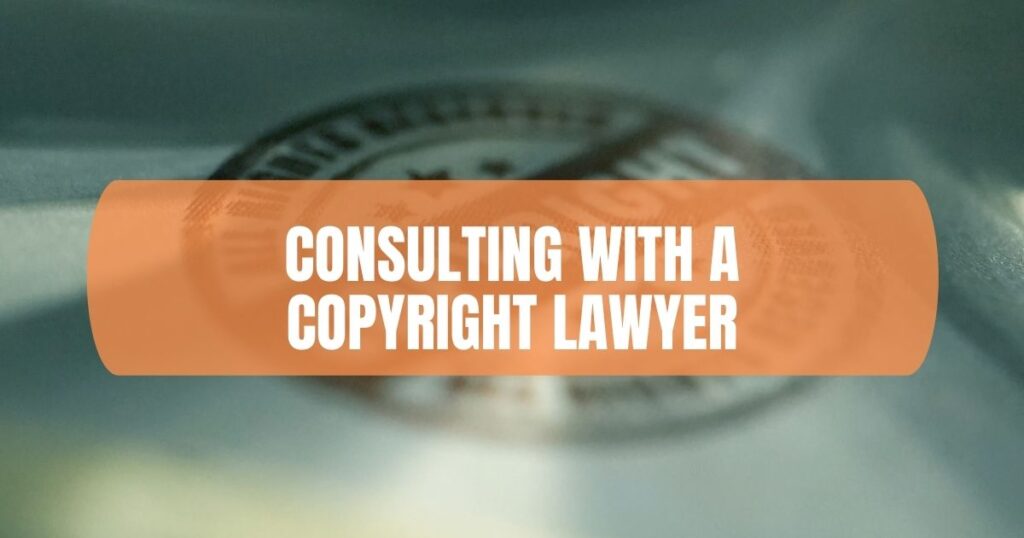
Consulting With A Copyright Lawyer
Consulting with a copyright lawyer can provide advice on how best to protect yourself legally as a songwriter or recording artist.
Whether you need help drafting contracts for commercial use of your songs, suing for damages due to someone illegally using your work without permission, filing an official complaint against suspected infringements, or seeking out alternative ways of protecting yourself from potential danger, having experienced professional advice by your side can make all the difference.
A copyright lawyer will also have knowledge of local acts relevant specifically to their country regarding royalties collection societies and other digital media sources like streaming sites like Spotify etc.
What To Do If Someone Infringes Your Copyright
If someone has infringed upon your copyright, it is essential to gather evidence and determine whether a legal infringement has taken place before sending a cease and desist letter.
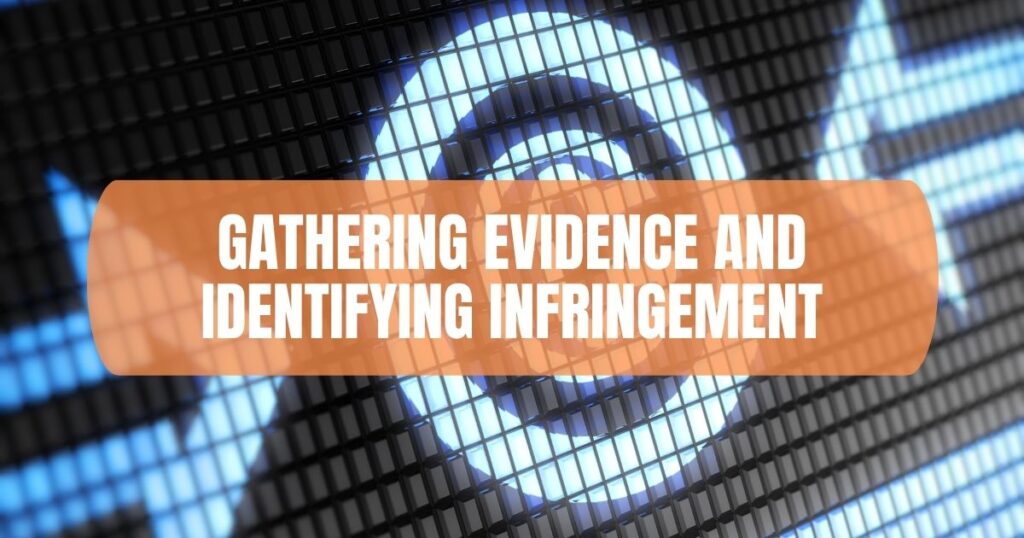
Gathering Evidence And Identifying Infringement
Keeping records and documentation when registering your song in the UK is essential, as this will help if you ever need to enforce copyright claims.
Evidence such as screenshots of unauthorised use in commercial settings or audio recordings of streamed music can prove useful when attempting to identify infringement.
When it comes to identifying infringing activity, be aware of any reproductions that have been made without permission online – such as streaming without notice on platforms like YouTube or Spotify – or material used in a commercial setting (such as advertising) for which no authorisation was sought.
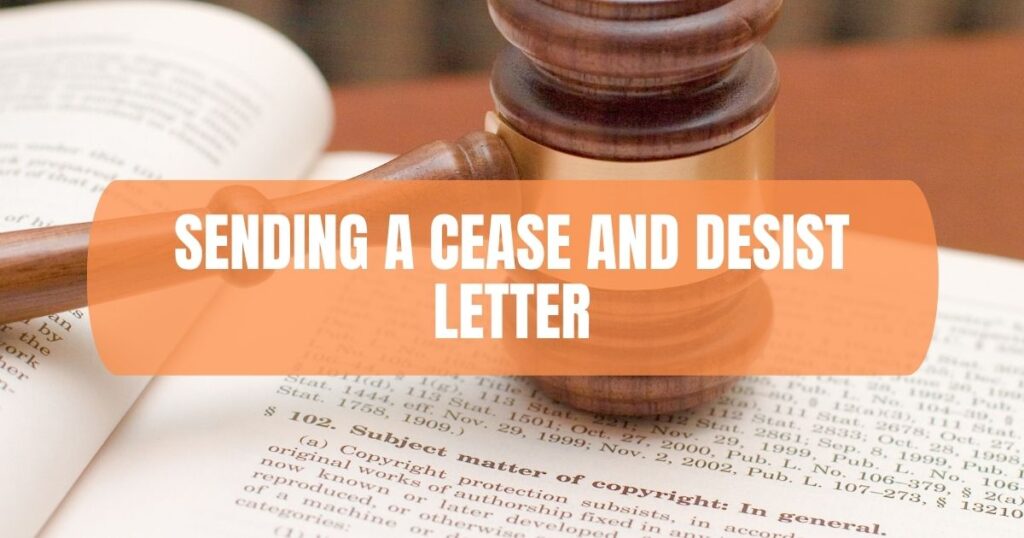
Sending A Cease And Desist Letter
Sending a Cease and Desist Letter is often the best first step to take if someone is infringing on your copyright, as it gives them an opportunity to cease their infringing activities.
A cease and desist letter should clearly state that you have a valid copyright claim, including details of when the work was published and how it has been infringed upon.
It’s important to remember that writing a cease and desist letter does not guarantee that the infringer will stop their activities; however, if they do not comply with your request, then the letter can provide evidence for any legal action you may choose to take in the future.
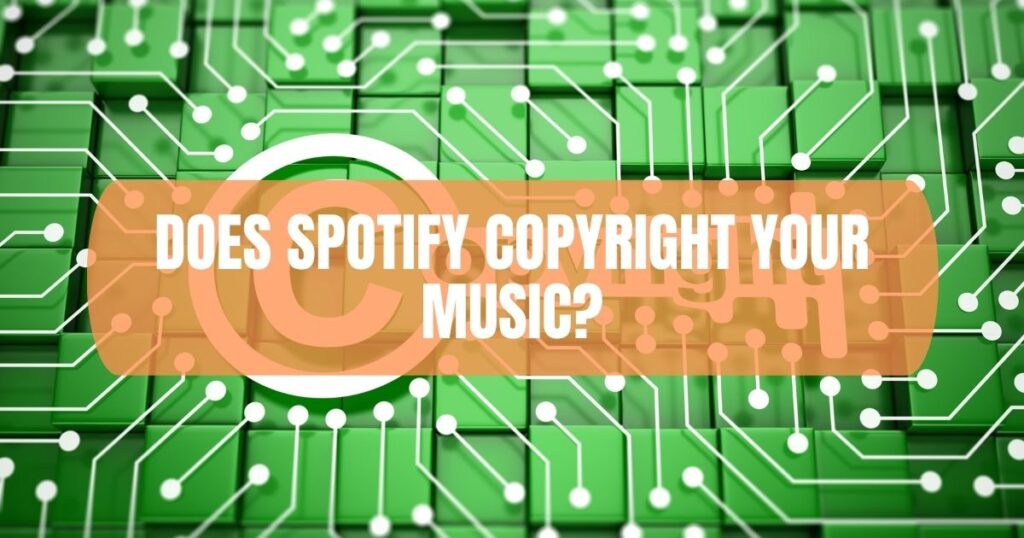
Does Spotify Copyright Your Music?
Spotify does not copyright your music.
However, the company respects intellectual property rights and expects its users to do the same.
If you are a copyright holder or an authorised agent of the holder and you believe that your music has been infringed upon on the platform, then there is a mechanism provided by Spotify for reporting such infringements.
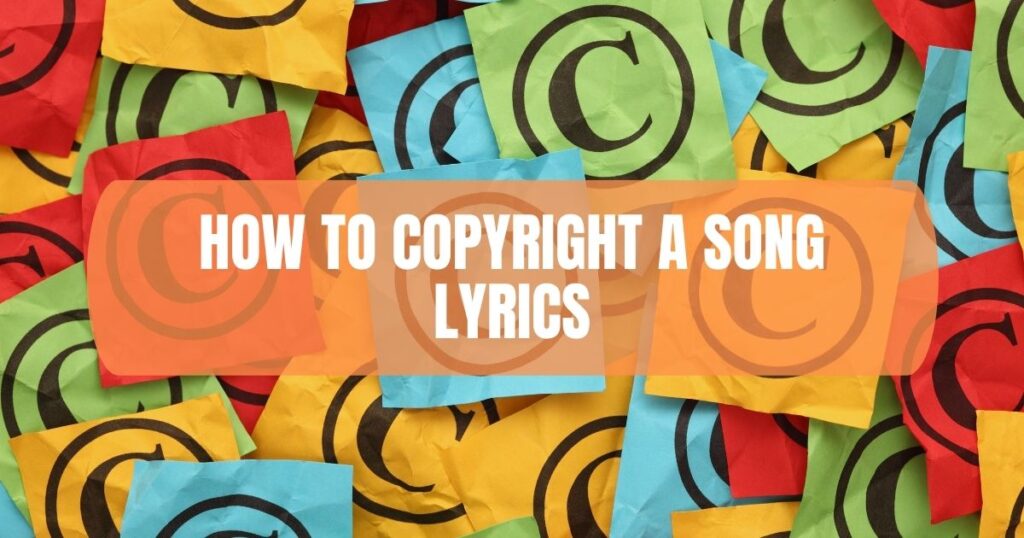
How To Copyright A Song Lyrics
In the UK, there are several steps you’ll need to take in order to legally copyright your song lyrics.
You can then go ahead and register your work online with PRS for Music – which stands for “Performing Rights Society”.
In addition to registering your work on PRS For Music, follow up by attaching a Copyright Protection notice displaying authorship details alongside each piece of work making sure others cannot potentially copy-paste sections without leaving due credit behind!
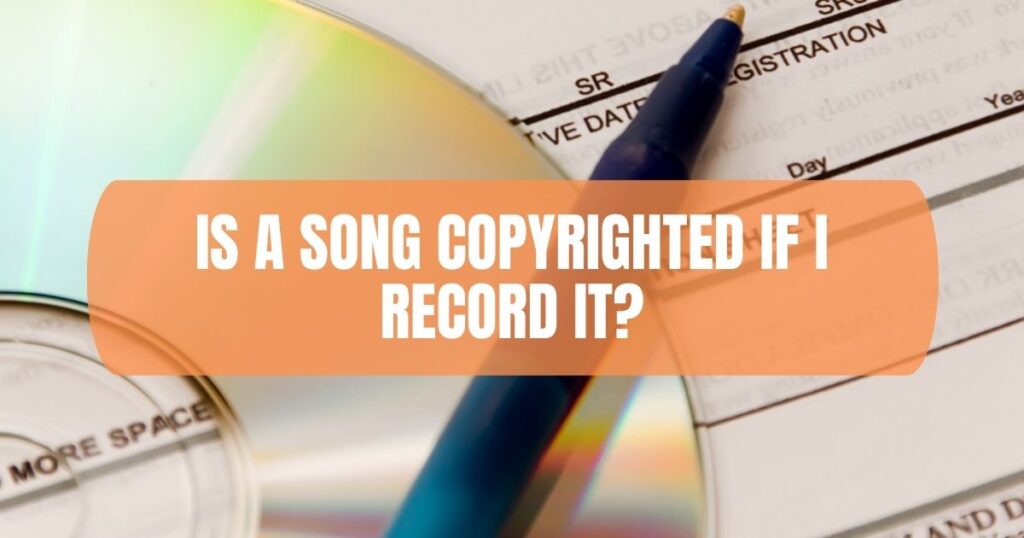
Is A Song Copyrighted If I Record It?
Under the UK’s Copyright, Designs and Patents Act and other laws, original artistic works – such as songs are protected by copyright automatically when they’re created.
This includes both the musical composition and the sound recording of a song.
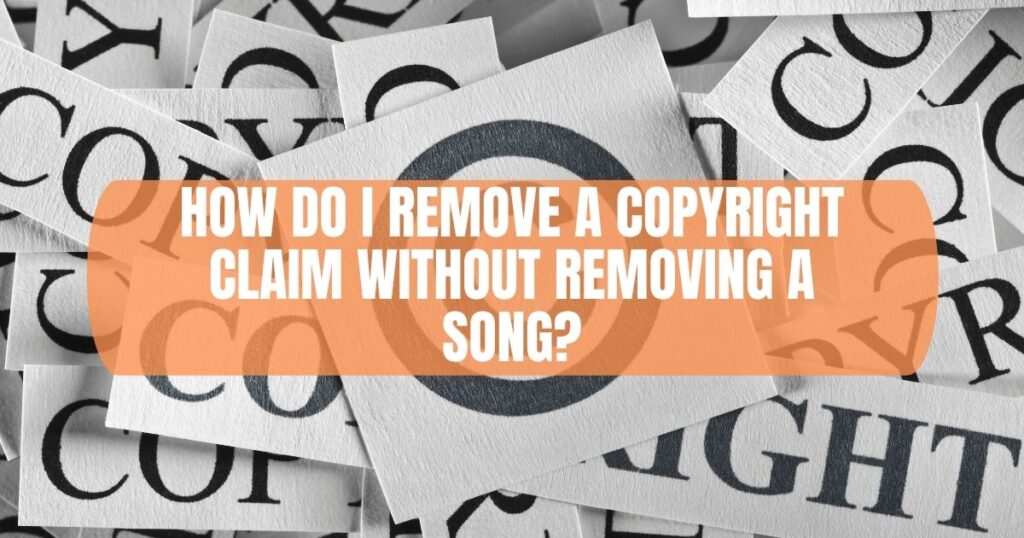
How Do I Remove A Copyright Claim Without Removing A Song?
When dealing with a false copyright claim on any platform, be sure to double-check that you have registered and copyrighted as previously outlined in this article; if not, do so immediately.
This will provide some tangible proof that your work predates any offending material or false claims against it.
If you’ve verified that the worked was indeed created before said material was uploaded then get in touch with either YouTube or SoundCloud support directly for help resolve issues quickly and efficiently.
All in All
I hope this article sheds some light on copyrighting!
If you think about it, getting your tunes copyrighted is pretty straightforward.
Just stick to the points above, and you’ll be sound!
Cheers, Josh
The Big Lists Of Music Promo Contacts
Includes PR companies, UK promoters & UK booking agents. Everything you need to put your band on the map.
Access ListsHello, I’m Josh, and I’ve been honing my graphic design skills for almost 15 years now, catering to the needs of bands and businesses alike. What really fascinates me is the business aspect of the music industry. In addition to my design work, I also happen to play the Hammond organ, and I strive to share my knowledge through helpful articles that I write exclusively for you all!


